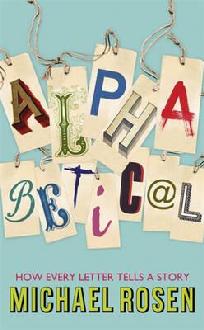 If you’re British and you drop your Hs while speaking then your likely to be considered of inferior breeding stock by the snootier classes. Or as the Times newspaper put it at the onset of the 20th century, you would be considered an “h-less socialist”. Of course, a mere fifty years earlier it was generally acceptable to drop aitches, so you would have been correct in pronouncing “hotel” as “otel” or “horse” as “orse”. And, farther back still, in Ancient Rome adding Hs would have earned the scorn of the ruling classes for appearing too Greek. So, who’s right?
If you’re British and you drop your Hs while speaking then your likely to be considered of inferior breeding stock by the snootier classes. Or as the Times newspaper put it at the onset of the 20th century, you would be considered an “h-less socialist”. Of course, a mere fifty years earlier it was generally acceptable to drop aitches, so you would have been correct in pronouncing “hotel” as “otel” or “horse” as “orse”. And, farther back still, in Ancient Rome adding Hs would have earned the scorn of the ruling classes for appearing too Greek. So, who’s right?
If you’re wondering how this all came about and who if anybody is right, check out the new book Alphabetical: How Every Letter Tells A Story by Michael Rosen.
From the Guardian:
The alphabet is something not to be argued with: there are 26 letters in as fixed a sequence as the numbers 1-26; once learned in order and for the “sounds they make”, you have the key to reading and the key to the way the world is classified. Or perhaps not.
Actually, in the course of writing my book about the history of the letters we use, Alphabetical, I discovered that the alphabet is far from neutral. Debates about power and class surround every letter, and H is the most contentious of all. No other letter has had such power to divide people into opposing camps.
In Britain, H owes its name to the Normans, who brought their letter “hache” with them in 1066. Hache is the source of our word “hatchet”: probably because a lower-case H looks a lot like an axe. It has certainly caused a lot of trouble over the years. A century ago people dropping their h’s were described in the Times as “h-less socialists.” In ancient Rome, they were snooty not about people who dropped their Hs but about those who picked up extra ones. Catullus wrote a nasty little poem about Arrius (H’arrius he called him), who littered his sentences with Hs because he wanted to sound more Greek. Almost two thousand years later we are still split, and pronouncing H two ways: “aitch”, which is posh and “right”; and “haitch”, which is not posh and thus “wrong”. The two variants used to mark the religious divide in Northern Ireland – aitch was Protestant, haitch was Catholic, and getting it wrong could be a dangerous business.
Perhaps the letter H was doomed from the start: given that the sound we associate with H is so slight (a little outbreath), there has been debate since at least AD 500 whether it was a true letter or not. In England, the most up-to-date research suggests that some 13th-century dialects were h-dropping, but by the time elocution experts came along in the 18th century, they were pointing out what a crime it is. And then received wisdom shifted, again: by 1858, if I wanted to speak correctly, I should have said “erb”, “ospital” and “umble”.
The world is full of people laying down the law about the “correct” choice: is it “a hotel” or “an otel”; is it “a historian” or “an historian”? But there is no single correct version. You choose. We have no academy to rule on these matters and, even if we did, it would have only marginal effect. When people object to the way others speak, it rarely has any linguistic logic. It is nearly always because of the way that a particular linguistic feature is seen as belonging to a cluster of disliked social features. Writing this book has been a fascinating journey: the story of our alphabet turns out to be a complex tug of war between the people who want to own our language and the people who use it. I know which side I’m on.
Read the (h)entire (h)article ‘ere.
Image: Alphabetical book cover. Courtesy of Michael Rosen.
